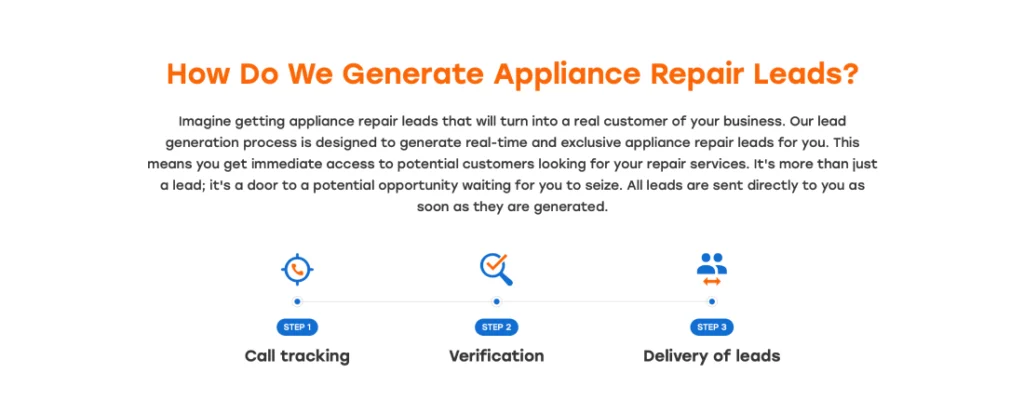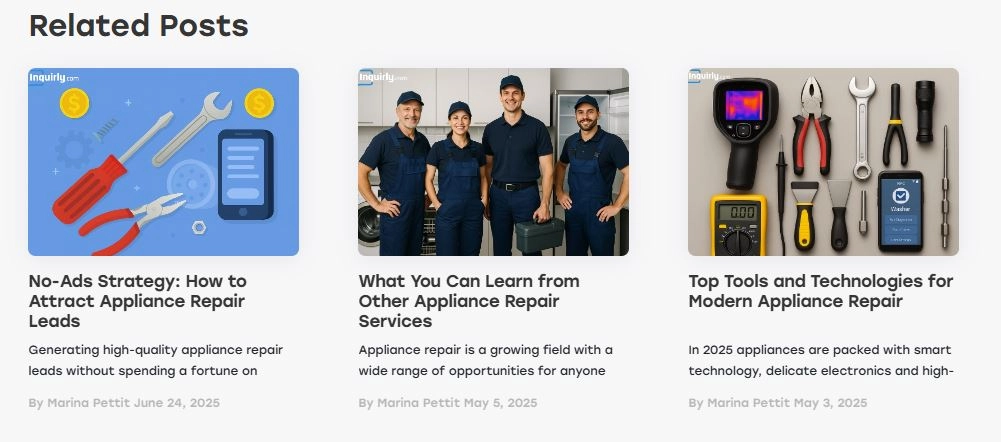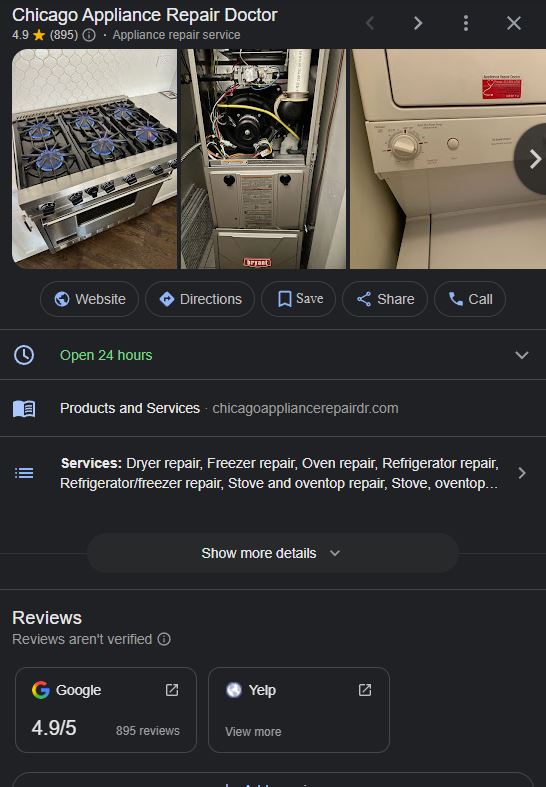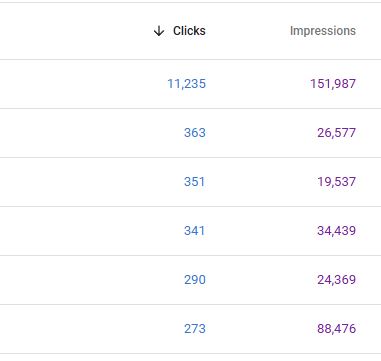In 2025, appliance repair businesses have plenty of options when it comes to buying leads. But more choice doesn’t always mean better results. Today’s lead generation platforms, such as Angi and Inquirly, aim to connect appliance repair businesses with homeowners actively searching for help. In theory, they’re designed to take the marketing burden off your shoulders and fill your schedule with qualified service requests.
Yet, the experience business owners report couldn’t be more different. The actual experience varies widely depending on the platform, the structure of the leads and the goals of the business using them. Some find themselves swamped with leads that go nowhere. Others report high-quality bookings that fill their schedules and fuel growth.
Let’s take a deeper look at Angi vs. Inquirly to help you understand which platform aligns better with how appliance repair marketing works now and what it takes to actually grow.
Why Appliance Repair Marketing Needs Have Changed
In the past, it was enough to run an ad in the paper or set up a Yelp profile. Now? Customers are more skeptical – they are more informed and more cautious, platforms are more crowded and competition is fierce. At the same time, digital platforms have become crowded. Search results are packed with ads, directories, and competitors. Paid advertising costs have risen, SEO takes time and attention spans are shorter than ever. For appliance repair businesses, this means simply being listed online is no longer enough.
Shared vs. Exclusive: The Real Difference
Before diving into each platform, it’s important to understand the most critical difference between lead services: shared leads vs. exclusive leads. This core difference directly impacts conversion rate, pricing strategy, and customer experience.
- Shared leads (Angi) are sold to multiple businesses, often 4-6 contractors at once. You’re in a race.
- Exclusive leads (Inquirly) are sent only to your business. You get the call, the message, the opportunity, without competitors breathing down your neck.
Angi: A Quick Refresher
Angi (formerly Angie’s List and merged with HomeAdvisor) is a well-known player in the home service marketplace. It connects users to professionals for all sorts of jobs, from electrical work to appliance repair.
Businesses pay to appear in listings or receive direct leads. You can also use Angi Ads, which work like pay-per-lead campaigns.
Inquirly.com
Inquirly is a modern lead generation platform built specifically for service-based businesses, including appliance repair companies looking for high-quality, exclusive leads without the noise of traditional directories. Unlike platforms that operate on shared leads or general listings, Inquirly focuses on performance-driven, one-to-one lead delivery.
That means every lead you receive is:
- Verified: Leads are pre-screened to match your services, availability, and location.
- Real-time: Delivered the moment the customer submits their inquiry.
- Exclusive: Sent to only one business – you. No competition, no race to call back first.
How Angi Generates Appliance Repair Leads
Angi captures user interest via organic traffic, SEO, and paid ads. A homeowner submits a request through Angi’s form, which is then sold as a lead to multiple service providers.
You then receive the customer’s information but so do several others.
You must contact the lead quickly, price competitively, and hope your reputation or pitch wins out.
Angi Ads: How It Works and What You Pay For
With Angi Ads, you’re essentially bidding for visibility. You set a budget and pay per lead, but control over the quality or volume can be unpredictable.
Many users report inconsistent results. Some weeks may bring high-volume requests; others may be dry. The Angi ads reviews in 2025 reflect this pattern: useful for some, frustrating for others.
Inquirly’s Lead Matching and Verification Process
Inquirly is intentionally selective. Leads are verified, geo-matched and assigned to you based on your actual service categories and hours of availability.

That means:
- Leads are exclusive to your business
- Requests are real-time and pre-screened
- You’re not competing with other companies over the same job
Angi
Inquirly
Cost Comparison: What Are You Really Paying For?
At first glance, Angi might appear to offer a more affordable entry point into paid lead generation. On paper, the cost per lead can seem low, especially if you’re comparing just the top-line numbers. But here’s where things get more complicated.
Angi typically sells the same lead to multiple contractors at once. That means you’re not just paying for a lead, you’re also paying for a race. In practice, you might end up calling five leads just to book one job. The result? A skyrocketing cost per booked appointment, often without the stability or predictability that growing businesses need.
For example:
- If you pay $30 per Angi lead, but only 1 in 6 leads convert, your cost per job is closer to $180 – not including the time, follow-up, or discounts you may offer to compete.
Inquirly’s Transparent Pricing Model
Inquirly, on the other hand, offers verified, exclusive leads with pricing based on lead type and urgency, without the competition factor. You’re not just getting contact info; you’re receiving a real-time, direct request from a homeowner in need of appliance repair, matched to your specific service area.
Here’s a general breakdown of Inquirly’s 2025 pricing for appliance repair leads:
| Form Leads | $10 – $30 per lead | Homeowners fill out a request form with specific repair info. Ideal for booking inspection-based or standard jobs. |
| Phone Calls | $20 – $100 per call | Live, inbound phone calls. Typically urgent jobs like broken refrigerators, washer leaks, or same-day service needs. |
Prices vary based on urgency, appliance type and service location. Inquirly’s model allows you to adjust lead flow and only pay when the right kind of lead is available, so you’re not locked into unnecessary spending during slow weeks or overbooked periods.
Start receiving exclusive appliance repair leads. Complete the Service Form here.
Who Should Use Angi vs. Inquirly?
Your ideal lead generation strategy should match the way you work, your available time, and your long-term goals. Here’s a more detailed breakdown of which platform might be a better fit for different business types:
🔧 Solo Technicians
If you work independently and manage your own scheduling, follow-ups, and service calls, Inquirly is a stronger fit. Since leads are exclusive, you won’t waste time competing with other contractors or chasing down unresponsive customers
🏢 Small Businesses (1-5 Employees)
When you’re trying to grow without sacrificing quality or burning out your staff, Inquirly’s curated approach gives you room to breathe.
🏗️ Larger Teams (Multi-tech or Multi-location)
For businesses with more staff, trucks or multiple service areas, both Angi and Inquirly can play a role, but in different ways. Angi may help generate volume if your dispatch team can respond rapidly and manage competitive leads. However, larger teams looking to maximize efficiency and avoid time-wasting price battles often find Inquirly’s exclusive lead model better aligned.
🚀 New Businesses / Startups
If you’re just getting started and want quick exposure, Angi might help get your name out there. However, because those leads are often shared and price-driven, it’s smart to view them as a short-term jumpstart, not a long-term strategy. As your business grows and your schedule tightens, transitioning to a platform like Inquirly, where lead quality and fit are prioritized, can help you convert more jobs and build your reputation faster.
Conclusion
Both Angi and Inquirly serve a purpose but they serve very different goals. In 2025, appliance repair companies that grow aren’t necessarily the loudest. They’re the most strategic. They invest in systems that reduce wasted time and increase booked jobs.
- If you want volume, visibility, and are ready to hustle for every lead, Angi can work.
- If you want efficiency, higher booking rates and better-fit customers, Inquirly offers a clearer path.
FAQs
Is Angi good for appliance repair leads?
It can be, but lead quality varies. You may need to contact multiple leads before booking just one.
What’s the biggest advantage of Inquirly?
Leads are exclusive, localized, and matched to your service type – no competition or undercutting.
Which is cheaper: Angi or Inquirly?
Angi may be cheaper per lead, but Inquirly often wins on cost per booked job due to better conversion.
Do I need to use both?
Some businesses do. But many drop Angi once they see consistent results from Inquirly.
Can I pause leads from Inquirly?
Yes, their system allows you to pause or adjust flow instantly.
Does Inquirly require a contract?
No. You can scale or pause any time, ideal for businesses with seasonal demand.




